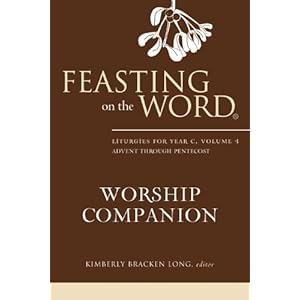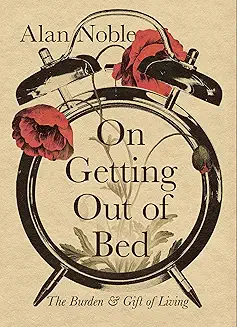Edited by Kimberly Bracken Long
ISBN 978-0664238056
Westminster/John Knox Press
Reviewed by Clint Walker

The folks and Westminster/John Knox Press and Columbia Theological Seminary partnered up to create a mainline, ecumenical commentary series that combined the best of biblical scholarship with an acute sensitivity to the pastoral tasks of teaching, preaching, and counseling people with the Scriptures called Feasting on the Word. Now these partner organizations are coming out with companion pieces to their commentaries. One of the first of these resources is litanies and liturgies to support worship. Feasting on the Word Worship Companion is a great book of readings and prayers to add to one's liturgical library.
The book in the series provides worship resources for Advent-Pentecost of Year C in the lectionary cycle. Each Sunday has an option of some Opening Words or a Call to Worship, resources for the confession of sin and assurance of pardon including a call to confession, a prayer of the day, a prayer for illumination, a prayer for intercession, and invitation to the offering and a prayer of dedication, a charge and a blessings, as well as the unexpected extras of questions for reflection and two household prayers for the week to be used in the morning and evening.
Kimberly Bracken Long and her team has an excellent attention to detail. Along side the readings for each part of the service are the Scriptures that are referenced in the readings. At the top of the page for each Sunday the readings are listed. In the back of the book, supplementary resources are included. These include prayers for baptisms, words for greeting the congregation, and Great Thanksgiving Eucharist texts for each season in the church year. In addition to these helpful extras, the book comes with a CD-ROM to cut and paste any of the resources used into a bulletin.
I really like this set of resources. There are a lot of liturgical resources available that, in my opinion, are simply overdone. They are written by folks who are poets, but often not highly skilled theologians or ministry practitioners. The result in this case is that many readings are overly flowery, and they sometimes even come across a little silly. Not so with Feasting on the Word Worship Companion. The readings are thoughtful, thought-provoking, and appropriately reverent for worship. They are creative, but in a way that makes you think about God and the text in a deeper way, not in a way that is cute or playful. I appreciate this.
The one drawback of the Worship Companion is the price. Right now, most retailers online are selling it for over $30. Which is a lot of money to spend for one half of a year's worth of liturgical resources. I think though, especially for the high seasons of the church year, in the end this will prove to be a good investment.









